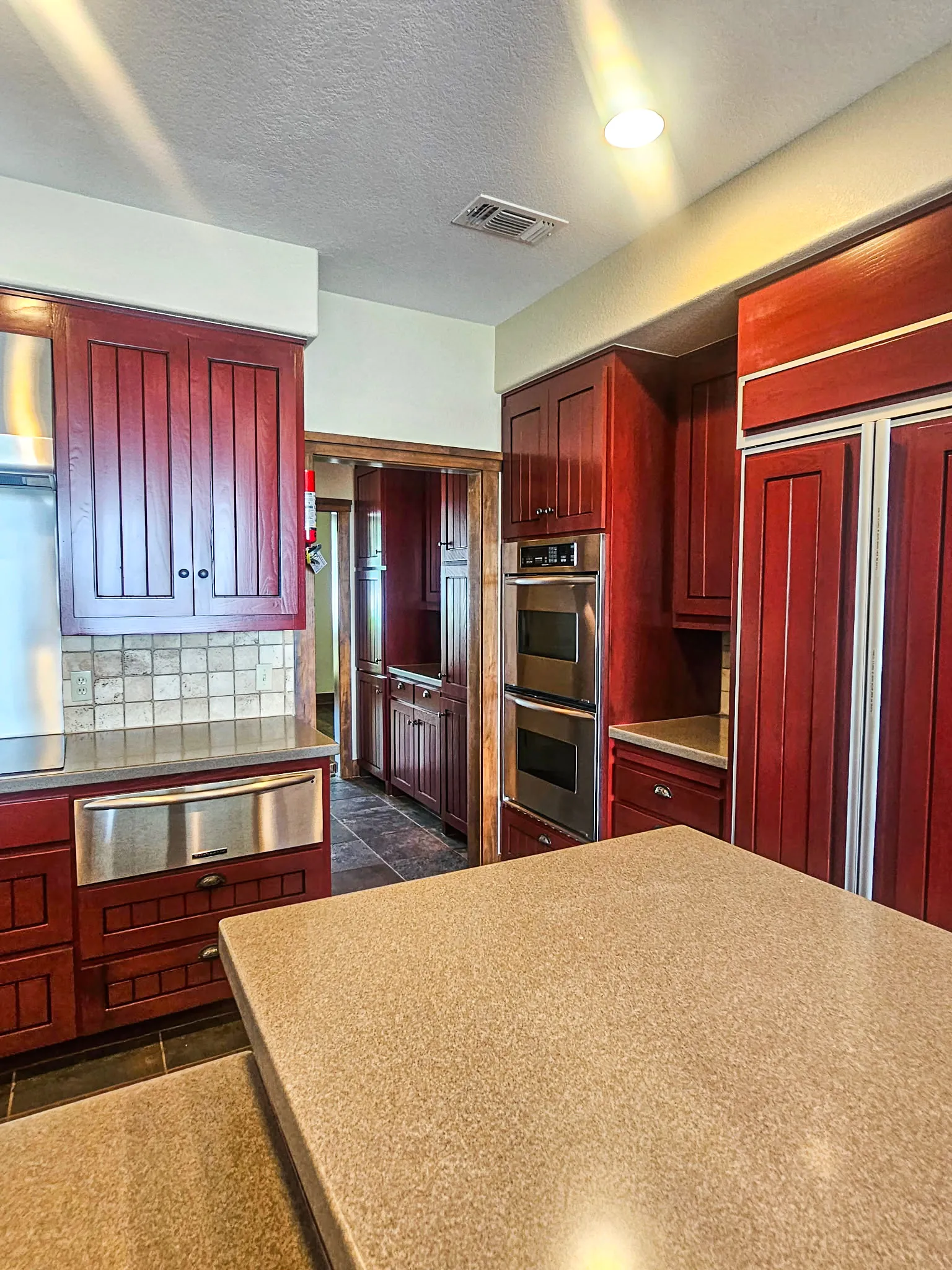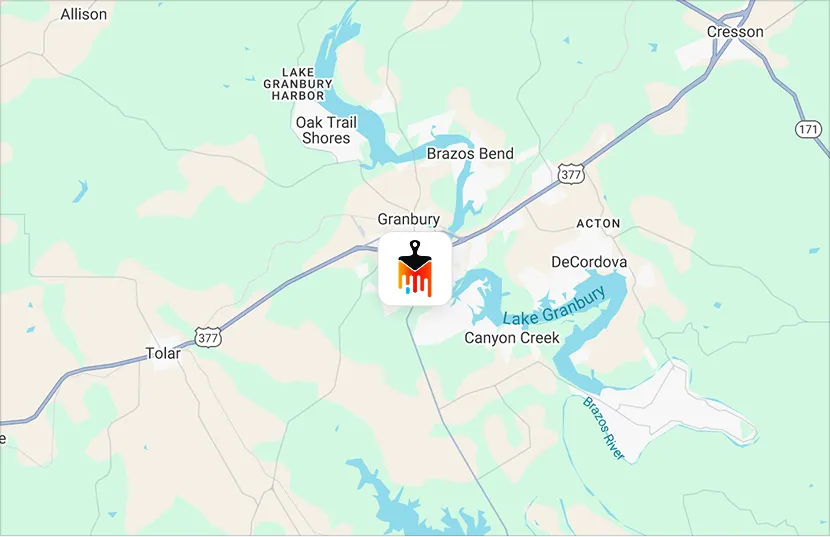Industrial Buildings in Fort Worth, TX
Industrial Buildings in Fort Worth, TX
Industrial buildings in Fort Worth, TX require coating and painting solutions built for heat, humidity, dust and heavy use. Whether you manage warehousing, manufacturing, food processing, petrochemical support, or distribution centers, effective surface preparation, corrosion protection, high-performance coatings and a proactive maintenance program protect assets, reduce downtime and keep facilities compliant with safety and environmental rules.

Common industrial coating challenges in Fort Worth
- Accelerated corrosion from summer humidity, seasonal storms and airborne particulates in the DFW metroplex
- Thermal stress and ultraviolet exposure from high summer temperatures that can degrade standard paints
- Chemical exposure in manufacturing and processing facilities requiring specialty chemical-resistant systems
- Heavy forklift, conveyor and traffic wear on concrete floors leading to dusting, cracking and bond failure
- Project logistics and production schedules that limit shutdown windows and require phased work to keep operations running
Surface preparation: the foundation of long-lasting coatings
Proper surface preparation is the single biggest factor in coating longevity. For industrial buildings in Fort Worth we commonly use:
- Blast cleaning (abrasive or garnet) for steel structures and tanks to remove scale, rust and old coatings and achieve the required anchor profile
- Power washing and degreasing for concrete and masonry to remove oils, salts and dust that interfere with coating adhesion
- Mechanical grinding and shot blasting of floors to expose sound concrete for epoxy and polyaspartic floor systems
- Moisture testing and salt contamination checks on concrete, especially after heavy rains or in facilities near washdown operations
Each substrate is evaluated and prepared to meet project specifications or standards such as SSPC and AMPP surface preparation guidelines.
Corrosion protection and high-performance coatings
For Fort Worth industrial environments, choose systems designed for the exposure:
- Epoxy and novolac systems for chemical resistance on secondary containment, piping and process equipment
- Polyurethane and polysiloxane topcoats for UV and weather resistance on exterior steel and roofs
- Zinc-rich primers and metallizing for long-term corrosion protection on structural steel
- Intumescent and fire-protective coatings for structural steel where fire ratings are required
- High-temperature and chemical-resistant coatings for ducts, ovens and process equipment exposed to heat and aggressive chemicals
Coating selection is driven by expected exposure, required service life and compliance needs. In Fort Worth, systems that resist humidity-driven corrosion and UV degradation are prioritized.
Epoxy and concrete floor systems for industrial traffic
Concrete floors in industrial buildings are high-value assets. Common solutions:
- Solid epoxy floor systems for medium to heavy traffic that provide chemical resistance and seamless protection
- Polyaspartic and rapid-cure overlays when minimal downtime is required; these systems allow faster return to service and can be applied at lower humidity conditions
- Flake systems and broadcast quartz for slip resistance and aesthetics in high-visibility areas
- Self-leveling mortars and repair systems to restore flatness and structural integrity before topping systems are applied
Proper slab repair, moisture mitigation and use of primers are crucial in Fort Worth where seasonal moisture and HVAC operations can influence slab conditions.
Compliance with safety and environmental standards
Industrial coatings work must meet federal and state regulations. Typical standards and requirements include:
- OSHA safety requirements for fall protection, confined space, respiratory protection and hot work permits during painting and blasting
- EPA and TCEQ considerations for air emissions and waste handling; selection of low-VOC coatings when required and proper disposal of spent media and solvent waste
- Industry certification standards and inspection protocols from organizations such as AMPP (formerly NACE/SSPC) and ISO where specified by project owners
Project specifications normally document required standards, inspection checkpoints and documentation deliverables.
Large-scale project logistics and downtime minimization
Industrial projects in Fort Worth often require coordinated logistics to limit production impact:
- Phased and sectional work sequencing to keep critical production lines online while other areas are serviced
- Night and weekend shifts and rapid-cure coating products to reduce production interruption
- Prefabrication and off-site coating of components where feasible to shorten on-site time
- On-site mobile blast units and temporary containment to control dust and manage environmental exposure during surface prep
- Detailed mobilization plans that address staging, material delivery, access, fall protection and permit coordination
Well-planned logistics reduce unproductive time and keep projects on schedule and budget.
Inspection and preventative maintenance programs
A documented inspection and maintenance program preserves coating investment:
- Initial condition surveys and baseline digital reports with photographs, DFT readings and adhesion test results
- Scheduled inspections using film thickness measurements, adhesion testing and holiday detection to detect failures early
- Targeted touch-up and localized repairs before issues become large-scale failures
- Lifecycle planning that schedules full recoats or system upgrades based on exposure, coating performance and operational needs
Regular reporting and predictable maintenance cycles lower long-term costs and prevent emergency repairs that cause extended downtime.
Relevant certifications and how they protect your project
When specifying contractors and coating systems, customers look for evidence of competency:
- Familiarity with AMPP/SSPC surface preparation and coating application standards
- Personnel trained and certified in abrasive blasting, NIOSH/OSHA respiratory protection and confined space entry
- Access to certified coating inspectors and use of calibrated testing equipment for DFT, adhesion and holiday testing
- Documentation practices that support regulatory compliance and asset management tracking
These certifications and inspection protocols give owners confidence that systems are applied correctly and will deliver expected service life.
Outcomes you can expect for Fort Worth industrial facilities
With the right combination of surface prep, coating chemistry and logistics, Fort Worth industrial facilities benefit from:
- Extended asset life measured in years or decades instead of months
- Reduced corrosion costs and fewer unplanned outages
- Safer working environments through slip-resistant floors and compliant containment systems
- Predictable maintenance budgets and reduced total cost of ownership
Ongoing maintenance and timely recoating are essential to realize these outcomes, particularly in Fort Worth where humidity, heat and industrial exposures accelerate wear.
Final considerations and maintenance tips
- Choose products rated for the specific chemical and thermal exposures of your operation
- Address concrete moisture and salt contamination before applying any floor system
- Use fast-cure systems or phased application for facilities with limited shutdown windows
- Establish an inspection schedule and keep digital records to support lifecycle decisions and regulatory audits
This information equips facility managers and owners in Fort Worth to evaluate industrial painting and coating options with confidence, prioritize investments and implement long-term maintenance programs that protect operations and assets.
Service Areas
Marin's Painting proudly serves a wide range of areas, ensuring top-quality painting services for both residential and commercial properties. Our team is dedicated to transforming spaces with precision and care.



